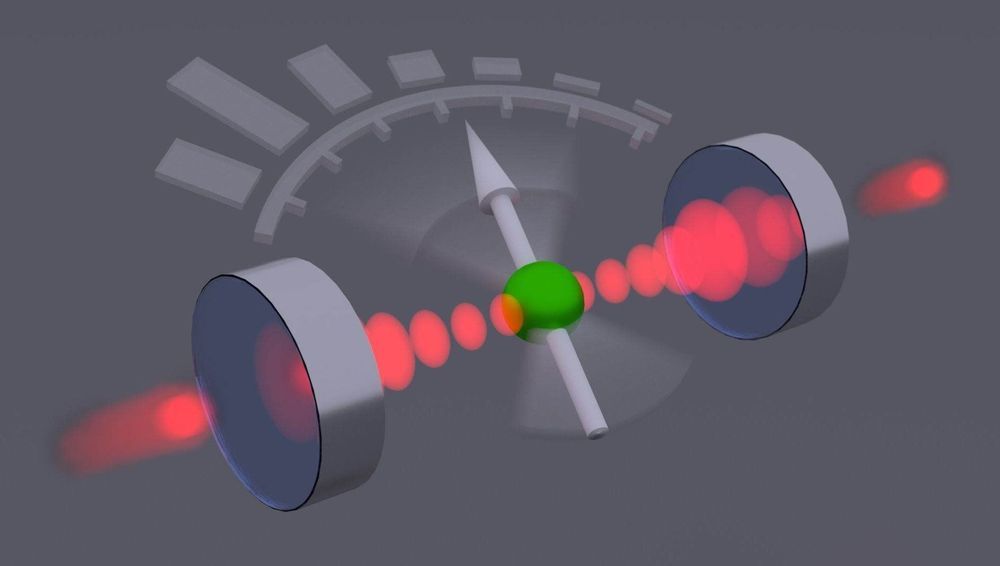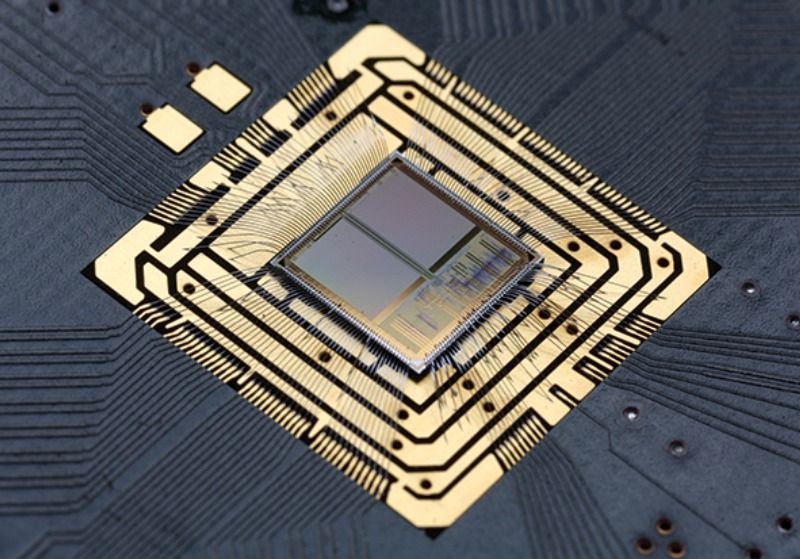Microsoft is adding a real Linux kernel to Windows 10, and has a new Windows Terminal command-line app for developers.
Category: computing – Page 820
The Much-Hyped, 18,000mAh Energizer Phone Flopped on Indiegogo
Mobile World Congress this past February included the unveiling of several notable smartphones like the Nokia 9 PureView and LG G8. However, one device got an inordinate amount of attention — the Energizer Power Max P18K Pop. Hiding behind that clunky name was a phone with a gigantic 18,000 mAh battery. This brick of a phone ended up on Indiegogo, and despite all the hype, it flopped. Hard. Of the anticipated $1.2 million, the phone only pulled in pre-orders worth $15,005 — just 1 percent of the required funding.
The Energizer Power Max P18K Pop is not actually a product of the battery manufacturer. The Energizer name is merely licensed by Avenir Telecom, a French manufacturer of phones, cables, and other accessories. It has produced other Energizer phones in the past, but none of them sparked the same combination of fascination and amusement.
The phone looked like a large aluminum power bank with a 6.2-inch screen on one side. The phone had almost no front-facing bezels thanks to the inclusion of a pop-up selfie camera. The phone parts of the device were competent if not particularly exciting. The P18K was supposed to have a MediaTek Helio P70, 6GB of RAM, 128GB of storage, and Android 9 Pie.

We’ve found an icy new super-Earth that’s orbiting our closest single star
SpiNNaker was built under the leadership of Professor Steve Furber at The University of Manchester, a principal designer of two products that earned the Queen’s Award for Technology —the ARM 32-bit RISC microprocessor, and the BBC Microcomputer.
“The ultimate objective for the project has always been a million cores in a single computer for real time brain modelling applications, and we have now achieved it, which is fantastic.” — Professor Steve Furber, The University of Manchester
Inspired by the human brain, the SpiNNaker is capable of sending billions of small amounts of information simultaneously. The SpiNNaker has a staggering 1 million processors that are able to perform over 200 million actions per second.

Quantum sensor for photons
A photodetector converts light into an electrical signal, causing the light to be lost. Researchers led by Tracy Northup at the University of Innsbruck have now built a quantum sensor that can measure light particles non-destructively. It can be used to further investigate the quantum properties of light.
Physicist Tracy Northup is currently researching the development of quantum internet at the University of Innsbruck. The American citizen builds interfaces with which quantum information can be transferred from matter to light and vice versa. Over such interfaces, it is anticipated that quantum computers all over the world will be able to communicate with each other via fiber optic lines in the future. In their research, Northup and her team at the Department of Experimental Physics have now demonstrated a method with which visible light can be measured non-destructively. The development follows the work of Serge Haroche, who characterized the quantum properties of microwave fields with the help of neutral atoms in the 1990s and was awarded the Nobel Prize in Physics in 2012.
In work led by postdoc Moonjoo Lee and Ph.D. student Konstantin Friebe, the researchers place an ionized calcium atom between two hollow mirrors through which visible laser light is guided. “The ion has only a weak influence on the light,” explains Tracy Northup. “Quantum measurements of the ion allow us to make statistical predictions about the number of light particles in the chamber.” The physicists were supported in their interpretation of the measurement results by the research group led by Helmut Ritsch, a Innsbruck quantum optician from the Department of Theoretical Physics. “One can speak in this context of a quantum sensor for light particles”, sums up Northup, who has held an Ingeborg Hochmair professorship at the University of Innsbruck since 2017. One application of the new method would be to generate special tailored light fields by feeding the measurement results back into the system via a feedback loop, thus establishing the desired states.


The Otso Incident with Donovia in 2030
“If we don’t study the mistakes of the future, we’re doomed to repeat them the first time :(” — Ken M, comedian.
[Editor’s Note: Today’s blog post is an excerpt from Mr. Robert J. Hranek’s short story entitled “Angry Engineer,” submitted to the 2019 Mad Scientist Science Fiction Writing Contest. The underlying premise of this contest was that, following months of strained relations and covert hostility with its neighbor Otso, Donovia launched offensive combat operations against Otso on 17 March 2030. Donovia is a wealthy nation that is a near-peer strategic competitor of the United States. The U.S. is a close ally of Otso and is compelled to intervene due to treaty obligations and historical ties. Among the many future innovations addressed in his short story, Mr. Hranek includes a “pre-mortem” in the form of two dozen lessons learned, identifying potential “mistakes of the future” regarding the Battle for Otso, so that we’re not “doomed to repeat them the first time!” Enjoy!]
The U.S. responded to Donovia’s invasion of Otso by initiating combat operations against the aggressors on 1 April 2030 — April Fools’ Day. Thousands of combatants died on both sides, mostly on ships; hundreds more were wounded, primarily from the land battle, and an unverifiable number of casualties occurred worldwide due to the sabotage of power grids and other infrastructure. An accurate civilian count was impossible in the chaos of reestablishing power, computer, and financial systems worldwide.
109 – Bruce Damer on The Origins and Future of Life
Bruce Damer is a living legend and international man of mystery – specifically, the mystery of our cosmos, to which he’s devoted his life to exploring: the origins of life, simulating artificial life in computers, deriving amazing new plans for asteroid mining, and cultivating his ability to receive scientific inspiration from “endotripping” (in which he stimulates his brain’s own release of psychoactive compounds known to increase functional connectivity between brain regions). He’s about to work with Google to adapt his origins of life research to simulated models of the increasingly exciting hot springs origin hypothesis he’s been working on with Dave Deamer of UC Santa Cruz for the last several years. And he’s been traveling around the world experimenting with thermal pools, getting extremely close to actually creating new living systems in situ as evidence of their model. Not to mention his talks with numerous national and private space agencies to take the S.H.E.P.H.E.R.D. asteroid mining scheme into space to kickstart the division and reproduction of our biosphere among/between the stars…
1000 x 1000 x 1000 Rubik’s Cube Solve
The biggest rubik’s cube… ever, being solved by a computer.
Please watch the new updated video instead (unless you really enjoy YouTube’s AudioSwap music): https://www.youtube.com/watch?v=0cedyW6JdsQ
Enjoy!!!
*I FORGOT THE NAME OF THE PROGRAM, I HAD IT A LONG TIME AGO!
The only program I can find (but it is not the same one as the video) is ACube 3 available here:
http://software.rubikscube.info/JACube/index.html
But I can’t test it because its not working on my computer.

Using computers to crack open centuries-old mathematical puzzles
Andrew Wiles’ proof of Fermat’s Last Theorem is a famous example. Pierre de Fermat claimed in 1637 – in the margin of a copy of “Arithmetica,” no less – to have solved the Diophantine equation xⁿ + yⁿ = zⁿ, but offered no justification. When Wiles proved it over 300 years later, mathematicians immediately took notice. If Wiles had developed a new idea that could solve Fermat, then what else could that idea do? Number theorists raced to understand Wiles’ methods, generalizing them and finding new consequences.
No single method exists that can solve all Diophantine equations. Instead, mathematicians cultivate various techniques, each suited for certain types of Diophantine problems but not others. So mathematicians classify these problems by their features or complexity, much like biologists might classify species by taxonomy.